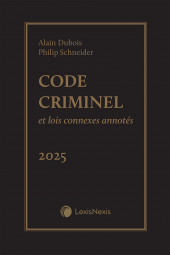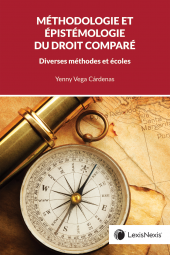The Child's Right to Legal Standing
One Year Subscription Only Terms
Subscribers receive the product(s) listed on the Order Form and any Updates made available during the annual subscription period. Shipping and handling fees are not included in the annual price.
Subscribers are advised of the number of Updates that were made to the particular publication the prior year. The number of Updates may vary due to developments in the law and other publishing issues, but subscribers may use this as a rough estimate of future shipments. Subscribers may call Customer Support at 800-833-9844 for additional information.
Subscribers may cancel this subscription by: calling Customer Support at 800-833-9844; emailing customer.support@lexisnexis.com; or returning the invoice marked 'CANCEL'.
If subscribers cancel within 30 days after the product is ordered or received and return the product at their expense, then they will receive a full credit of the price for the annual subscription.
If subscribers cancel between 31 and 60 days after the invoice date and return the product at their expense, then they will receive a 5/6th credit of the price for the annual subscription. No credit will be given for cancellations more than 60 days after the invoice date. To receive any credit, subscriber must return all product(s) shipped during the year at their expense within the applicable cancellation period listed above.
Détails des produits
How Do North American Courts Treat Children's Legal Standing?
North American courts take an inconsistent approach to the complex issue of the un-emancipated child's right to legal standing in civil matters. Courts and individuals who act as Guardians or Attorneys Ad Litem must try to serve children's independent interests, within the constraints on children's legal standing.
The Child's Right to Legal Standing is the first book to examine the continuum of legal standing granted to children in Canada and the United States under family law. Professor Grover examines 41 key cases on children's right to legal standing as an aspect of personhood. The cases cover a wide range of legal domains and civil proceedings.
Case judgment summaries and analysis through notes, questions, and various alternative court perspectives will help you to:
- Assess the underlying assumptions of varying court judgements
- Build a more informed position to address children's legal standing
- Advocate more effectively for children's human rights
- Assess the extent of Canada's compliance with Article 12 of the United Nations Convention on the Rights of the Child regarding the child's right to be heard in judicial and administrative proceedings affecting the child
Challenging Questions
For Child Advocates
- Is the right to legal standing in one's own name a fundamental human right?
- Does the legislated legal incapacity of un-emancipated children in North America - even mature minors - accord with or contravene democratic values?
- What precisely does the child's right to legal standing encompass?
- Why does such disparity exist in North American court judgments regarding children's legal standing?
- Is the legislated legal incapacity of un-emancipated children in North America always in the children's best interest?
For Guardians and Attorneys Ad Litem
- To what extent can a child participate in judicial or administrative proceedings, even via a Guardian Ad Litem, Attorney Ad Litem, or next friend?
- Who can serve as a next friend and why?
- Are there any circumstances when a next friend is not required?
- Can a parent serve as next friend for a child without counsel, as in certain special education cases?
- Are parental interests sometimes incorrectly advanced as indistinguishable from those of the child who has little or no legal standing in the matter?
An Invaluable Casebook For
- Law practitioners working in family law, child protection, refugee and immigration law, constitutional law, human rights, medical law, and education law whose clients include children, parents, and/or guardians
- Lawyers and frontline social workers acting as Attorneys Ad Litem and Guardians Ad Litem, respectively, who need to understand the scope of their role
- Law faculty and students in disciplines dealing with law and society, social justice, constitutional law, human rights, and children's rights
- Sociology faculty and students focusing on the sociology of childhood and the philosophy and sociology of law
- Children's advocates and members of the general public concerned with children's human rights
Click here to read a review of this title
Table des matières
Preface: Age Discrimination Regarding the Grant of Legal Standing Chapter 1: The Family Court Context
Chapter 2: The Medical Context
Chapter 3: Probate Court
Chapter 4: The Education Context
Chapter 5: The Immigration and Refugee Context
Chapter 6: Children Apprehended and Detained Who Are Not Criminally Charged
Chapter 7: The Human Rights Context
Chapter 8: Mature Minors Without Legal Capacity Due to Non-Age to Initiate Court Actions in Their Own Name in their Demand for Equality and Democratic Participation
Produits liés
-
 Le droit linguistique au Québec, 2e éditionDate de sortie: September 09, 2024155,00 $
Le droit linguistique au Québec, 2e éditionDate de sortie: September 09, 2024155,00 $ -
 Code criminel et lois connexes annotés, édition 2025 (Volume 1) + Guide du praticien (Volume 2) + Livre électroniqueDate de sortie: August 13, 2024175,00 $
Code criminel et lois connexes annotés, édition 2025 (Volume 1) + Guide du praticien (Volume 2) + Livre électroniqueDate de sortie: August 13, 2024175,00 $ -
 Méthodologie et épistémologie du droit comparé : Diverses méthodes et écolesDate de sortie: July 10, 2024100,00 $
Méthodologie et épistémologie du droit comparé : Diverses méthodes et écolesDate de sortie: July 10, 2024100,00 $
 Lexis Nexis
Lexis Nexis 